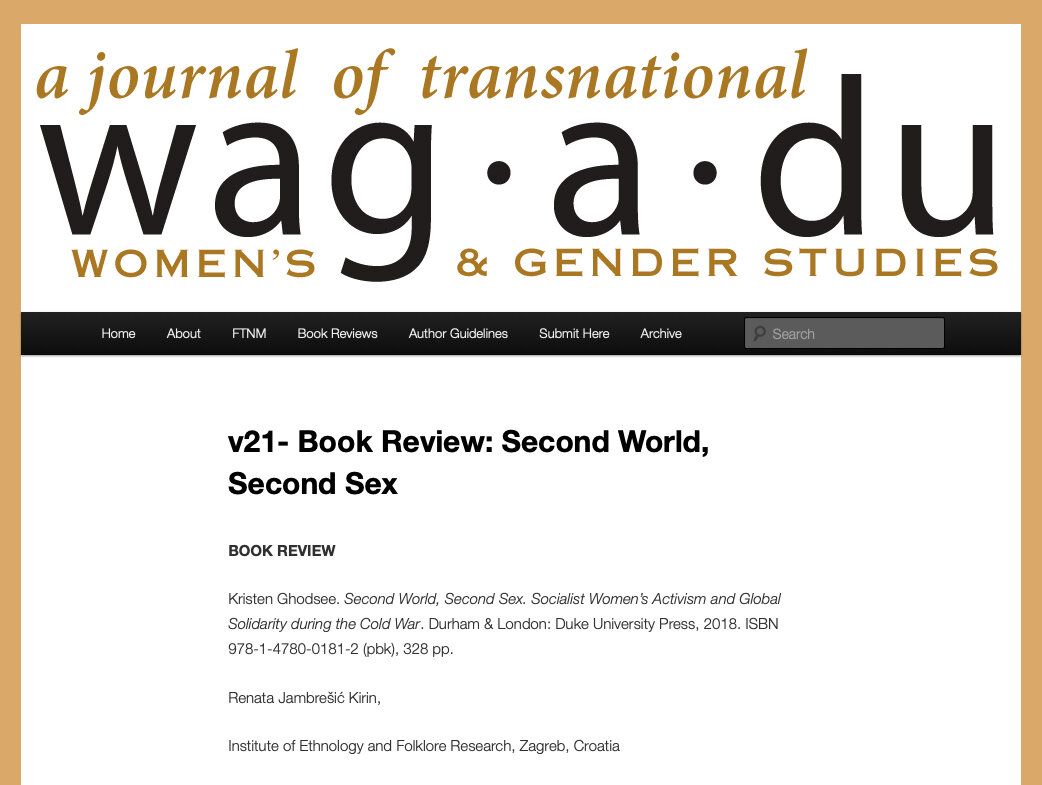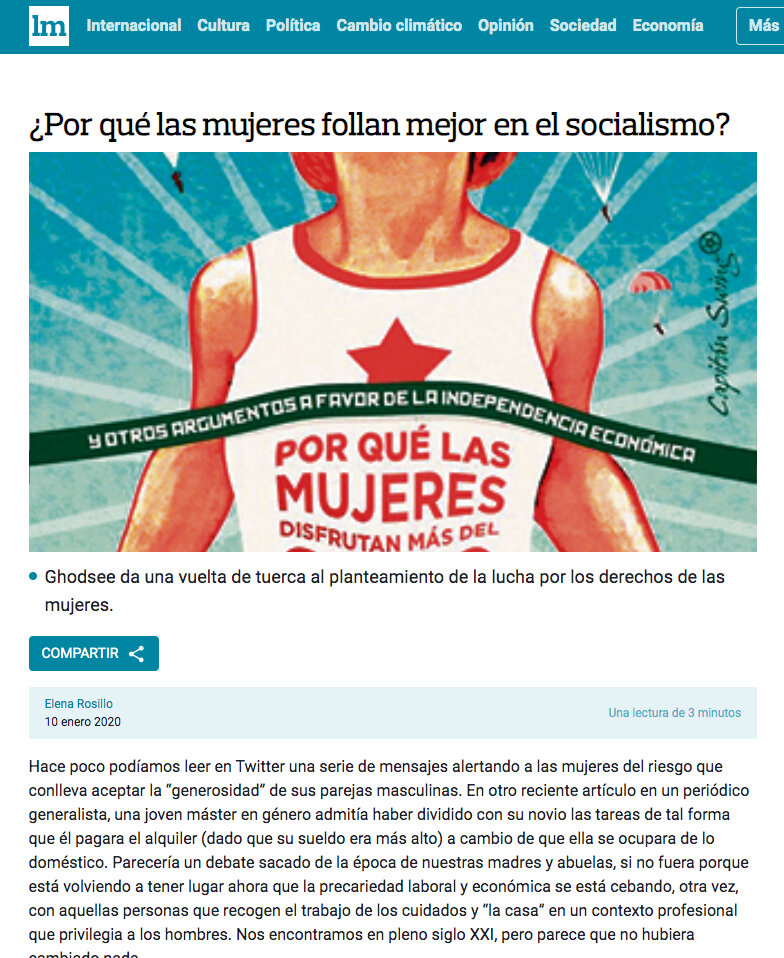A nice review in Inside Higher Ed →
My review of Lea Ypi's brilliant new book, Free →
“For Albania, Capitalism’s Promise of Freedom Soon Turned Sour,” Jacobin Magazine, November 11, 2021
16 livres féministes qu’il ne fallait pas manquer en 2020 →
So thrilled to be included on this list of the 16 feminist books of 2020 that you should not miss as chosen by the French culture magazine, Les Intockuptibles.
New review of Second World, Second Sex →
Thanks to Renata Jambrešić Kirin for such a thorough engagement with the book!
A new review in El Nacional (Cat) by Marta Roqueta →
“Sexe a la URSS” Marta Roqueta, Barcelona. Dimecres, 22 de gener de 2020 (Catalan)
A gorgeous little review in Spain's La Marea (en Español) →
A wonderful review in Jetzt, the young reader's edition of the Süddeutsche Zeitung →
auf Deutsche: “Haben Frauen im Sozialismus besseren Sex?”
Kirkus Review →
“From paid maternity leave to employment assurances, an argument for the benefits of socialism for women.
Ghodsee (Russian and East European Studies/Univ. of Pennsylvania; Red Hangover: Legacies of Twentieth-Century Communism, 2017, etc.) sums up her thesis in the introduction: “Unregulated capitalism is bad for women, and if we adopt some ideas from socialism, women will have better lives.” And if you disagree with the author, she clearly doesn’t care. “If you don’t give a whit about women’s lives because you’re a gynophobic right-wing internet troll,” she writes, “save your money and get back to your parents’ basement right now; this isn’t the book for you.” Ghodsee’s in-your-face tone sets the stage for a book that takes readers on a pointed examination of the Soviet experiment. Using her years living in Bulgaria as fodder for the narrative, along with decades of research, she makes the case that there are lessons capitalist countries can and should learn from socialism—e.g., how socialists pushed for equity between men and women and the benefits of collective forms of support for child-rearing. At the same time, the author isn’t blind to the failures of socialist regimes. “Hungarians never managed to redefine traditional gender roles,” she writes, “and domestic patriarchy was strengthened by pro-natalist family policies.” Still, she points to examples of Scandinavian countries where socialist ideas are working to improve women’s lives: “A wider social safety net,” she writes, “like those in the contemporary Northern European countries, will increase rather than decrease personal freedom…no one should have to stay in a job she hates for health insurance, or stick with a partner who beats her because she’s not sure how she’ll feed the kids, or have sex with some sugar elder because she can’t afford textbooks.” Ghodsee makes a convincing case, though she fails to investigate how socialism addresses LGBTQ and people of color. Perhaps she’s saving that for another book.
While the title is the literary version of click-bait, the book is chock-full of hard-hitting real talk.”








